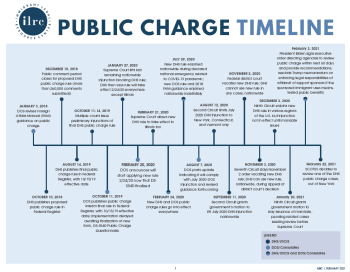
This timeline provides a quick, visual summary of the changes to public charge policy at the Department of Homeland Security (DHS) and the Department of State (DOS) from January 2018 through July 29, 2021.
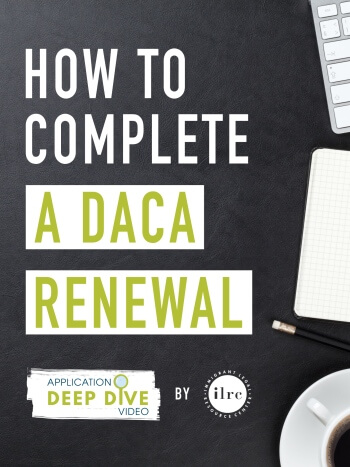
This video details how to complete a DACA renewal application packet by walking through the various forms’ questions to highlight what they mean and focus on areas worth paying close attention to. As always, we highly encourage applicants to seek a consultation with a trusted legal service provider before submitting their packets. Namely this is so applicants can ensure they are submitting their information as accurately as possible and addressing the dimensions of their specific case that may or may not allow them to be eligible for other forms of immigration relief. In this one-hour walkthrough video, the ILRC’s Legal Outreach Coordinator, Abraham Bedoy, dives deep into each form required for a renewal so those taking on their own application packet (forms: I-821D, I-765, I-765WS, G-1145) can follow along to double-check their entries.
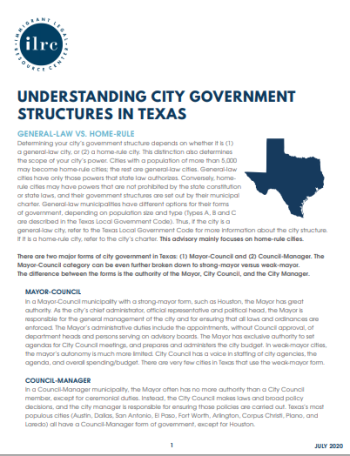
Before pushing for change at the city level, it is important to understand your city government’s structure, as well as the responsibilities and powers of elected and appointed city officials, such as the Mayor, City Council, Police Chief, City Attorney and City Manager. This resource is for Texas advocates and explains the differences between the two major forms of city government in Texas, the powers of important city officials, and how various forms of city government affect the roles of those officials.
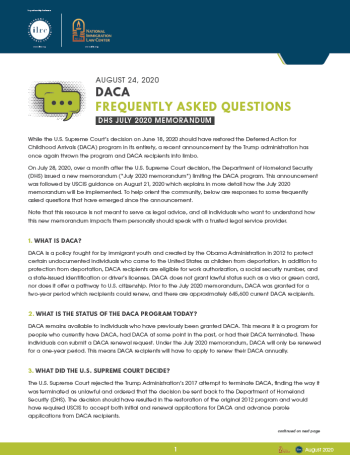
While the U.S. Supreme Court’s decision on June 18, 2020 should have restored the Deferred Action for Childhood Arrivals (DACA) program in its entirety, a recent announcement by the Trump administration has once again thrown the program and DACA recipients into limbo. This resource goes over frequently asked questions to help orient the community of this new change with DACA program.
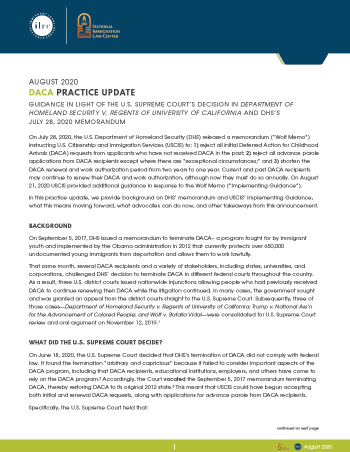
On July 28, 2020, the U.S. Department of Homeland Security (DHS) released a memorandum instructing U.S. Citizenship and Immigration Services (USCIS) to: 1) reject all initial Deferred Action for Childhood Arrivals (DACA) requests from applicants who have not received DACA in the past; 2) reject all advance parole applications from DACA recipients except where there are “exceptional circumstances;” and 3) shorten the DACA renewal and work authorization period from two years to one year. This Memorandum was followed by USCIS additional guidance on August 21, 2020.
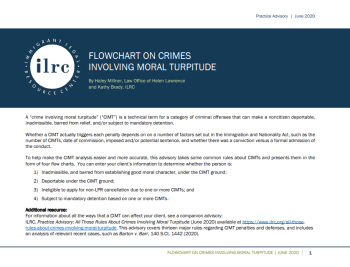
Penalties for crimes involving moral turpitude (CIMTs) are based on several factors, such as the number of CIMTs, date of commission, imposed and/or potential sentence, and whether there was a conviction versus admission of the conduct. The result is that determining whether a CIMT penalty actually applies can be quite complex. This set of four flow charts can be used to answer four questions about a case: is the particular person deportable; inadmissible or barred from establishing good moral character; barred from applying for non-LPR cancelation; or subject to mandatory detention, based on CIMTs?
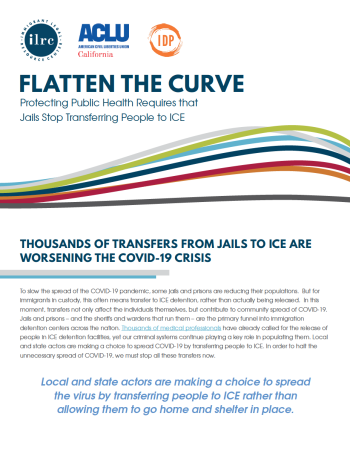
Jails and prisons are the primary funnel into immigration detention centers across the nation. Instead of letting people who are due for release from custody go home, jails transfer them to ICE. During this pandemic, these transfers to ICE not only affect the individuals themselves, but contribute to community spread of COVID-19. Local and state actors are making a choice to spread the virus by transferring people to ICE, rather than allowing them to go home and shelter in place. In order to halt the unnecessary spread of COVID-19, we must stop all these transfers now. The resource below is available with both a national and CA-specific focus.
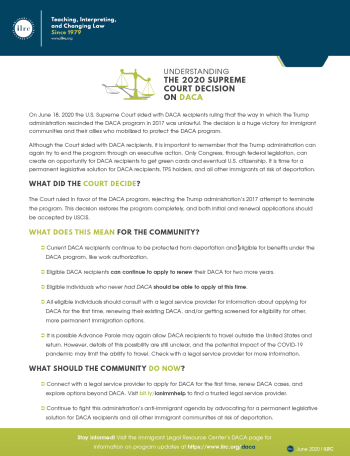
On June 18, 2020 the U.S. Supreme Court sided with DACA recipients ruling that the way in which the Trump administration rescinded the DACA program in 2017 was unlawful. The decision is a huge victory for immigrant communities and their allies who mobilized to protect the DACA program.
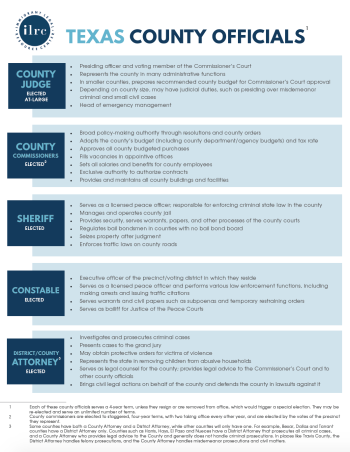
Before pushing for change at the county level, it is crucial to understand the powers and responsibilities of different county officials and bodies. This resource is for Texas advocates and explains the authority and jurisdiction of various local elected county officials in Texas.
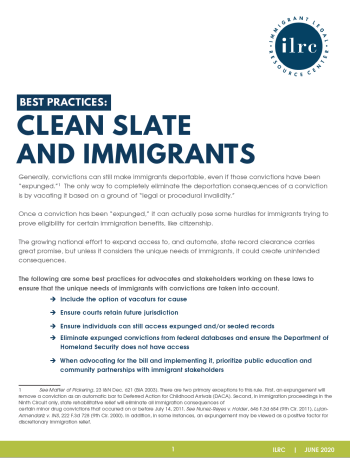
This resource outlines some best practices for advocates and stakeholders working to expand access to, and automate, state record clearance.